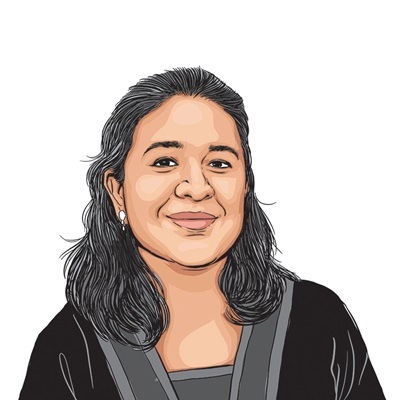Opinion India@75, Looking@100: What I don’t want India to be in 2047
I don’t want it to be a country where the youth is traumatised and disillusioned
 Prime Minister Narendra Modi
Prime Minister Narendra Modi How India treats her young is of utmost importance to the nation’s future. Every morning, it seems, we read about young people protesting against discrimination and abuse. Complicating the matter are the layers of patriarchy, subalternity, and caste. As I try to wrap my head around these issues, I am asked to write my vision/dream for India at 100. I will instead write about what I don’t want India to be at 100.
I don’t want India to be a country where the youth is traumatised and disillusioned. Extra care should be taken of those who have identified and challenged abuse of power and are bold enough to fight that which is unjust, unequal and unfair.
In the course of my work, I deal with cases of such trauma. It is painful to see the despair on the faces of young women who feel unsafe and unwelcome in spaces where they should feel safe and protected. We see how enablers of abuse are respected, celebrated and left unchallenged in homes, communities, training grounds, educational institutions and workplaces. This breaks the spirit of the survivors who need to get past many hurts and invalidations. We have gravely underestimated the danger of institutionalised retaliation against those who speak up against abuse. This contrasts radically with the way in which those complicit escape any accountability.
Since the enactment of the Sexual Harassment of Women at Workplace (Prevention, Prohibition & Redressal) Act, 2013, my engagement with Internal Committees (ICs) has been eye-opening. We have seen patterns of behaviour, vulnerabilities and red flags that were previously invisible to us. We call out injustice and abuse, without minimising or normalising it.
ICs are designed as much for prevention as for redress. The preventive aspect is to be activated not only via awareness, education and training but also by eradicating conditions which could lead to harassment. In other words, it is the job of the IC to identify those who are more vulnerable to exploitation and to take measures to awaken and empower them so that they are able to protect themselves as well as others.
After an investigation is completed, the IC not only provides recommendations on how to resolve a particular case but outlines steps to heal, improve and sometimes overhaul the ecosystem. The advantage of having an internal committee is that justice and healing are closer and more accessible and since all except one IC member are part of the organisation, they can see to it that the changes they recommend are implemented. The one external member has a key role to play — to counteract an inward bias, to make the invisible visible, to provide a gender-justice lens and help create an action plan for lasting change.
In a well-known hospital, while closing a recent sexual harassment enquiry, we informed a senior surgeon about the disciplinary action intended against him as the committee had found him guilty. In a surprising reaction, he admitted that it had never occurred to him that his inappropriate comments about nurses and junior women doctors not only impacted them but also gave leeway to all junior male staff to emulate his behaviour. It is such moments of realisation that make this work worthwhile.
The best ICs aim for remorse and restoration, not disciplinary action. Every week I get a few requests to help with tailoring policies, awareness workshops and forming/training ICs, from all kinds of organisations, including unstructured ones like film production units, start-ups, and even art exhibitions and film festivals. Those who initially wanted to avoid implementing the workplace sexual harassment prevention law, by insisting that they are not really a “workplace”, are beginning to see the value in this work. When you make organisations safe for women, you make them safer for everybody.
In the past months, we have had Olympian wrestlers in the capital city, heartbroken and disillusioned as they protested abuse. We have dancers in Chennai struggling to acknowledge the abuse they have experienced. Film students elsewhere plead for an IC which will do its job. Those who protest are often accused of sullying the name of their institution. What’s heartbreaking is the derision and dismissiveness towards anyone who cries out for change. I hope by the time our incredible India is 100, this is replaced by decency, dignity, affection and care. That is the first step towards validating “Vasudhaiva Kutumbakam”.
The writer is an organisational ethics consultant, supporting workspaces with sexual harassment prevention and redressal. This article is part of an ongoing series, which began on August 15, by women who have made a mark, across sectors






